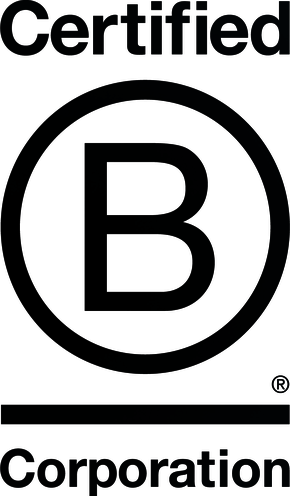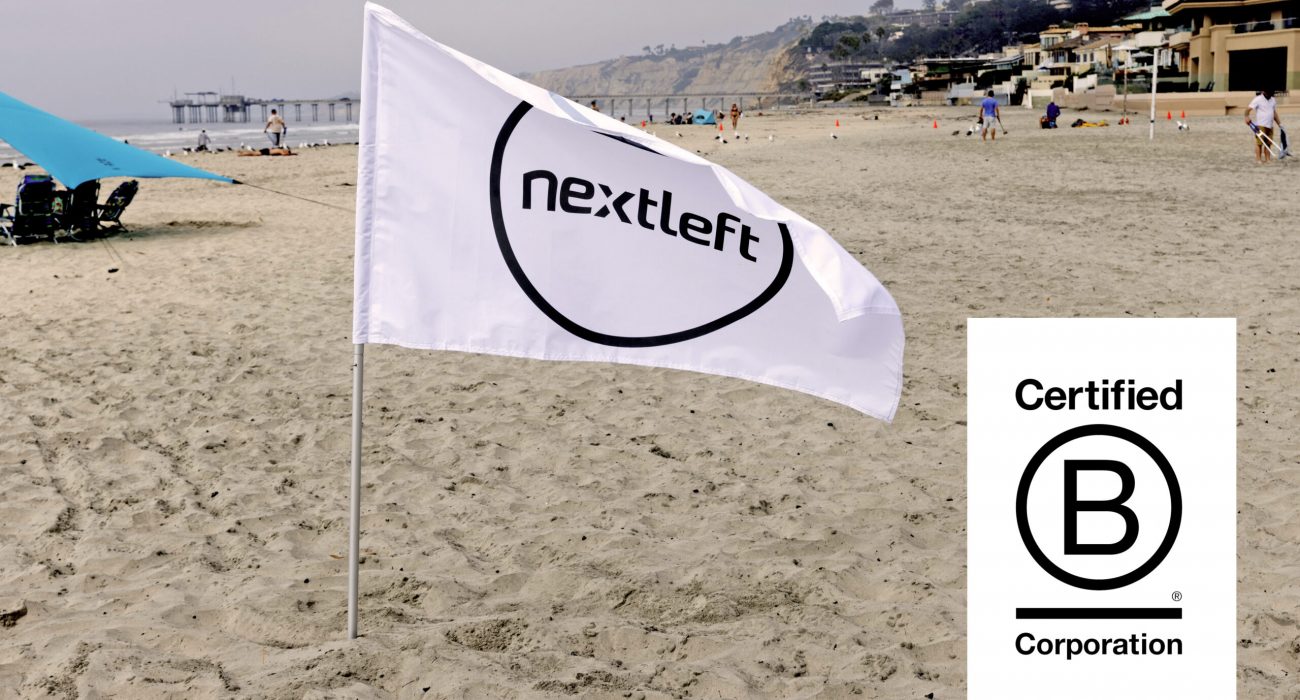What is a B Corp?
B Corps represent a growing movement of companies dedicated to not just being the best in the world, but the best for the world. You may have seen the B Corp organization logo on some of your favorite websites and products, but what does being a Certified B Corp actually mean? These companies have met rigorous standards in considering the impact of their decisions on their workers, customers, suppliers, community, and the environment. This is a step beyond the traditional corporate model, which focuses primarily on maximizing shareholder value.
The rise of socially responsible business models, including B Corps, is driven by a growing recognition that businesses play a critical role in addressing social and environmental issues. This shift is influenced by consumer demand, as more people are looking to support companies that align with their values. Investors are also increasingly attracted to socially responsible businesses, recognizing that these companies can offer sustainable, long-term returns by addressing some of the world’s most pressing challenges.
In essence, B Corps and the rise of socially responsible business models reflect a growing understanding that business success should not be measured solely by financial performance, but also by the positive impact on society and the environment. This shift is crucial for addressing global challenges and building a more inclusive and sustainable economy.
Understanding B Corps
Definition of a B Corp
Looking for a Certified B Corporation definition? A business that has achieved Certified B Corp status is one that has satisfied all B Corp requirements for inclusion and that integrates social and environmental goals into its core mission, alongside profit. This dual focus marks a significant departure from traditional corporations, which primarily aim to maximize company value and revenue at all cost. The designation of a B Corp signifies a company’s commitment to broader societal and environmental objectives, evaluated against a high set of standards.
Some of the key differences between B Corps and traditional companies include:
Purpose: While traditional corporations are primarily focused on generating profits for shareholders, B Corps are obligated to consider the impact of their decisions on all stakeholders, including employees, communities, and the environment.
Accountability: B Corps must demonstrate an ongoing commitment to social and environmental responsibility by meeting transparent and comprehensive standards of performance, accountability, and transparency set by B Lab, the nonprofit that certifies B Corps and helps define corporate responsibility.
Transparency: In order to receive a B Corp certification, companies are required to furnish detailed reports on their social and environmental performance. This process helps to clearly identify their CSR efforts and ensure that they are continuously meeting B Lab standards for certification. What’s CSR mean? CSR stands for corporate social responsibility and is the term commonly used to describe a company’s integration of social and environmental concerns into their daily business operations.
Above all else, B Corps are committed to creating positive impacts beyond financial gains. This involves various initiatives, such as:
- Adopting sustainable business practices to minimize environmental footprints.
- Ensuring fair wages and safe working conditions for employees.
- Engaging in community development and supporting local economies.
- Prioritizing ethical supply chains and responsible sourcing.
Benefits of Becoming a B Corp
Being a B Corp offers a wide range of advantages and benefits. From providing operational enhancements to improving external relationships and reputation, having a B Corp certification improves businesses inside and out. Additional advantages of B Corp certification include:
Access to a Network of Like-Minded Businesses: B Corps join a community of companies committed to doing business differently, prioritizing social and environmental outcomes alongside profit. This network facilitates collaboration, sharing best practices, and even forming business partnerships with companies that share similar values. It provides a powerful platform for learning, innovation, and mutual support.
Branding: B Corp certification can significantly enhance a company’s brand. It signals to customers, suppliers, and the community that the company is committed to higher standards of social and environmental performance, transparency, and accountability. This can differentiate the company in crowded markets, appealing to consumers who are increasingly looking for products and services that align with their values.
Employee Attraction and Retention: A growing number of workers, particularly among younger generations, are looking for employment that not only provides adequate pay but also aligns with their personal values and offers a sense of purpose. Companies with B Corp certification are more attractive to these individuals, as they demonstrate a commitment to community and environmental awareness. This can help attract top talent and increase employee satisfaction and retention, as workers feel more engaged and aligned with their employer’s mission.
Investor Interest: Investor interest in sustainable and responsible businesses has been growing. B Corps may find it easier to attract investment from funds and individuals looking for opportunities that promise sustainable, long-term growth while also contributing positively to society and the environment. The rigorous assessment process and standards required for certification can serve as a signal to investors of a company’s commitment to managing its social and environmental impact, potentially reducing investment risk.
Improved Public Perception: Certification can improve a company’s reputation among consumers, communities, and even regulators. By voluntarily meeting higher standards of transparency, accountability, and performance, B Corps can build trust and goodwill. This can lead to greater customer loyalty, community support, and potentially more favorable regulatory treatment.
Competitive Advantage: Being part of a globally recognized community of socially and environmentally responsible businesses can provide a competitive advantage. It can open up new market opportunities, enhance relationships with suppliers and partners who prioritize sustainability, and position the company as a leader in responsible business practices.
Challenges and Criticisms
Obtaining and maintaining B Corp certification presents several challenges for businesses, reflecting the rigorous standards and comprehensive evaluation process required. Moreover, while the B Corp movement aims to redefine success in business, it has faced criticism regarding its effectiveness, inclusivity, and scalability.
Some of the challenges associated with obtaining and maintaining B Corp certification include:
Rigorous Standards: The B Impact Assessment, which companies must pass to become certified, evaluates a company’s performance across governance, workers, community, environment, and customers. Achieving the minimum score of 80 out of 200 points can be challenging, especially for businesses not initially founded with these principles in mind.
Operational Changes: Many companies need to make significant operational changes to meet B Corp standards. This can involve restructuring supply chains, investing in sustainable practices, or changing how employees are treated and paid, which can be time-consuming and costly.
Ongoing Commitment: Maintaining certification requires continuous effort and improvement, as companies must recertify every three years. This ongoing commitment can be resource-intensive, requiring dedicated staff or teams to manage and report on sustainability initiatives.
Some of the criticisms made about the B Corp movement include:
Effectiveness: Critics question whether B Corp certification genuinely leads to meaningful change or if it serves more as a marketing tool. There is debate over whether the movement can significantly impact global corporate practices or if it remains a niche for businesses that are already inclined to be socially and environmentally responsible.
Inclusivity: The certification process can be challenging and expensive, potentially excluding smaller businesses or those from less developed economies. This raises concerns about the movement’s inclusivity and accessibility, particularly for businesses that might lack the resources to undergo certification but are nonetheless committed to social and environmental impact.
Scalability: The scalability of the B Corp movement is another point of contention. Critics argue that while the model is commendable, its stringent requirements may limit the number of businesses that can realistically achieve and maintain certification, thereby limiting its overall impact on the global economy.
Despite these challenges and criticisms, the B Corp movement continues to grow, reflecting a significant shift in the global business community towards more sustainable and equitable practices. The movement’s emphasis on rigorous standards and continuous improvement is part of its strength, encouraging companies to innovate and push boundaries. Moreover, B Lab and the broader B Corp community are aware of these criticisms and have been working on initiatives to increase accessibility and impact, such as providing more support for small businesses and expanding into new markets.
The B Corp certification is not a perfect solution, nor does it claim to be. However, it represents a significant step toward a more sustainable and inclusive economy, offering a framework for companies to measure their impact on society and the environment and strive for improvement.
The B Corp Certification Process
Interested in learning how to get B Corp certification? The B Corp certification process is designed to assess a company’s overall social and environmental performance, accountability, and transparency. Managed by B Lab, this certification process involves an assessment phase, scoring phase, verification phase, and certification phase. The details of these phases are as follows:
Assessment Phase: Companies start by completing the B Impact Assessment (BIA), a comprehensive online tool that evaluates the company’s impact on its workers, customers, community, and the environment. The BIA covers areas such as governance, workers’ rights, community engagement, environmental impact, and customer treatment.
Scoring Phase: To qualify for certification, a company must score at least 80 out of 200 points on the BIA. This ensures that only businesses genuinely committed to certain standards of social and environmental performance can proceed. If a business fails to score the minimum requirement on the BIA, they are welcome to improve their operations and social/environmental impact and try again. This is usually when companies enlist the help of B Corp consultation services.
Verification Phase: If a company scores above 80 points, B Lab will review the assessment to verify the responses. This process may include supplying additional documentation and participating in interviews.
Certification Phase: Once all necessary requirements are met, the company pays a certification fee based on its annual sales. B Corp certification is then awarded, valid for three years before a company must recertify to maintain its status.
B Impact Assessment
Taking a closer look at the B Impact Assessment (BIA), companies are scored out of 200 points on the following key areas, each with specific metrics:
Governance: This area examines a company’s mission, ethics, accountability, and transparency. Metrics include the integration of social and environmental objectives into corporate governance structures, stakeholder engagement, and management practices that support the company’s mission.
Workers:  This area focuses on the company’s contributions to employee well-being. This includes metrics on compensation, benefits, training and education, work environment, and worker ownership.
This area focuses on the company’s contributions to employee well-being. This includes metrics on compensation, benefits, training and education, work environment, and worker ownership.
Community: This area assesses the company’s impact on the local, national, and global community. Metrics include job creation, diversity and inclusion practices, community engagement, and support for local suppliers.
Environment: This area evaluates the company’s environmental performance through metrics such as energy use, waste, water use, environmental management practices, and the impact of products and services on the environment.
Customers: This area measures the impact of a company’s products or services on its customers. This includes considerations of product safety, privacy and data protection, and the positive impact on customers through products or services designed to solve social or environmental problems.
Through the B Impact Assessment, companies gain a comprehensive understanding of their impact, identifying areas where they excel and areas for improvement. This process not only helps businesses move toward B Corp certification but also provides a framework for ongoing improvement, driving positive change in their operations and broader communities.
What is the Difference Between a B Corp and a Benefit Corporation?
A B Corp and a Benefit Corporation share similar goals in promoting societal and environmental benefits alongside profit, but they differ significantly in their legal structure and certification process. While a B Corp refers to a certification obtained from B Lab, a Benefit Corporation is a legal status recognized by certain state laws in the United States and in other countries. This legal status allows a corporation to integrate public benefits into its corporate purpose, ultimately resulting in a positive impact on society and the environment. This status modifies the corporation’s fiduciary duties, allowing directors and officers to consider obligations beyond those to shareholders in their decision-making processes. Unlike B Corps, Benefit Corporations do not need to undergo certification by an external body but must meet statutory requirements and often produce annual benefit reports detailing their social and environmental performance.
Global Impact of B Corps
The global movement towards B Corps reflects a growing trend in redefining the role of business in society. Companies are increasingly held accountable for their impacts on the world, leading to a rise in the number of businesses striving for B Corp certification. This shift signifies a broader transformation towards a more sustainable and inclusive economy, where success is measured not just by financial performance, but by the positive change a business can bring to society and the environment.
The adoption of B Corp certification varies regionally, reflecting differences in economic conditions, cultural values, and regulatory environments. In North America, particularly the United States and Canada, there is a robust and growing community of B Corps, supported by a culture of entrepreneurship and innovation in social enterprise. In Latin America, countries like Chile and Brazil have seen rapid growth in B Corp certification, driven by a strong focus on social and environmental justice. Europe has also experienced significant adoption, with countries like the UK, France, and Italy recognizing the value of B Corps in promoting sustainability and social cohesion. Each region’s unique challenges and opportunities shape the focus and initiatives of its B Corps.
San Diego B Corps
San Diego, known for its vibrant business community and commitment to sustainability, has seen a growing trend of companies seeking B Corp certification. Certified B Corps in San Diego are diverse, ranging from small startups to larger enterprises across various sectors, including technology, consumer goods, consulting services, and more. Some of the standout B Local San Diego companies include Boochcraft, Classy, and NextLeft. These companies are united by their commitment to using business as a force for good, adhering to the rigorous standards of social and environmental performance, accountability, and transparency set forth by B Lab.
Here at NextLeft, we have implemented practices that reduce our carbon footprint, conserve water, and promote sustainable resource use.
We strive to play an active role in our community by supporting local initiatives, engaging in volunteerism, and donating to local causes. We are committed to strengthening community bonds and addressing local issues by partnering with both San Diego Coastkeeper and the Helen Woodward Animal Center.
Future of B Corps
The future of social entrepreneurship and sustainable business is poised for significant evolution, driven by increasing awareness of environmental issues, social inequalities, and the urgent need for systemic change in the corporate world. As part of this evolution, B Corp certification and its standards will grow and change to reflect global needs and trends. Ideally, B Lab and B Corp certification will see an expansion in their influence and reach, a perpetual refinement of standards, more integration with mainstream businesses, better policy and governmental support, and an overall broader impact on society and the corporate world. The future looks promising for socially and environmentally responsible businesses. The continued evolution of B Corps will likely serve as both a catalyst and a model for how businesses can operate sustainably and ethically in the face of global challenges.
Final Thoughts
The B Corp movement is more than a certification– it’s a global community of leaders and innovators committed to using business as a force for good. As the challenges facing our world grow increasingly complex, the need for businesses to contribute positively to society has never been more critical. By adopting the B Corp model, your business can join a growing wave of change-makers redefining what it means to be successful in business and making a lasting impact on the world. If you’re interested in partnering with a B Corp company and want to learn more about conducting socially and environmentally conscious business, contact NextLeft today. It’s up to all of us to reflect the changes we want to see in the world





